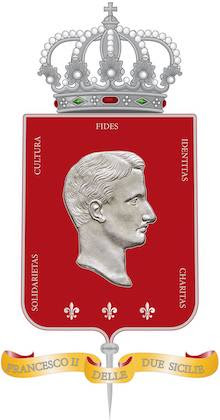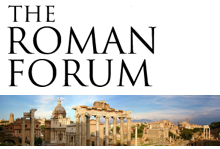Il Regno had the opportunity to sit down and talk with Raymond Guarini, founder and Executive Director of the Italian Enclaves Historical Society (IEHS), to discuss its history and mission. The IEHS can be found at www.italianenclaves.org and various social media platforms.Il Regno: We appreciate you taking time from your busy schedule to answer our questions. First, can you tell our readers a little about yourself?
Raymond Guarini: Thank you for giving me the time to chat about myself and the Italian Enclaves Historical Society with you. I am 43 years old. I am a Brooklyn native living in Staten Island—something you've probably never heard of before. I have a 12-year-old son and a 2-year-old dog. I have worked in finance for 20 years. I am passionate about my faith and my heritage.
IR: What is the Italian Enclaves Historical Society?
RG: The organization was founded by me almost 5 years ago. I began exploring different Italian-American neighborhoods around the country and was photo-documenting them along the way. I decided to create Facebook and Instagram pages to showcase the visual nuances of Italian neighborhoods, or as we refer to them, enclaves. The pages became so popular that they took on lives of their own. I became so obsessed with documenting each neighborhood, that we now have over 700 enclaves and over 500 churches. We created a living document which is on a shared Google Drive that board members can update whenever we discover new places and obtain new information. Constantly growing and expanding, we recently added Canadian enclaves and churches to our database.
IR: How did the IEHS come about?
RG: I realized that my hobby of cataloging enclaves and churches was way too tall of a task to complete alone. Due to the sheer volume of information and locations, it also became clear that this venture would be expensive. So, with the help of one of our original members, I created an actual entity with nonprofit status that could be utilized as an online and in-person educational resource wherever we could.
IR: What are the biggest challenges you face and how do you overcome them?
RG: Our biggest challenges are twofold. On one hand, the workflow is just very difficult to keep consistent. We are a volunteer organization. We are sort of still a startup with very limited resources, so it is difficult to accumulate writing regarding something so esoteric regardless of how dedicated our board members might be. It takes a great deal of time and energy to coordinate our Google Drive documents, which are spreadsheets, with our Word documents, which contain the details about each enclave and church. The project is somewhat intimidating because there are so many places that require more information and they are to a certain degree under the radar.
The other challenge is funding. To properly execute this undertaking, we had to spend quite a bit of money to hire freelancers who possess the proper skillsets to help us migrate the information onto our website. We are lucky that our expenses are not overwhelming, but we would like to be able to raise more funds to speed up the process so that we can focus on other projects and disseminate our information in more efficient and interesting ways.
IR: What are the most rewarding aspects of your work?
RG: The greatest reward is the positive reactions we get from people whenever we discover a place that was lost in obscurity and share it on one of our social media pages. It is very rewarding for me to be able to see these places in person. Not only does it help me really identify with a lost time period, but also in many cases with lost virtues. Community and family were once paramount, and it seems as if our society today has lost sight of the basics that built what we all take for granted.
IR: What plans does the society have for the future?
RG: We will continue adding newly discovered content to our website. That is one of our biggest priorities. In addition to that, we would love to start a YouTube channel with more visual content and be able to disseminate more documentary-type content. We would also like to utilize Virtual Reality technology. Not so much Metaverse, as that medium is still dicey, but a static software application utilizing VR to incorporate the visual elements of the places we research.
IR: Is the IEHS a membership group? How can people join or help the society?
RG: Yes, individuals can join. Students can join for a discounted annual membership. We urge Italian-American Businesses to join as well so we can share their content on our social media channels and help shed light on lesser-known mom-and-pop shops that still haven't fully harnessed social media. Membership funds are extremely important for us to continue gathering and disseminating information. [The link to become a member is: https://italianenclaves.org/membership/]
IR: Thank you for talking with us; any last thoughts?
RG: The pleasure is all mine, thank you. I would like to encourage people to follow us on social media: @italianenclaves
Please take photos of everything: Your family, your family's traditions, and any visual elements of your family story. Video record them as well. The historical value and appreciation will be the fruits of tomorrow's inquisitive minds as to how we once lived.











